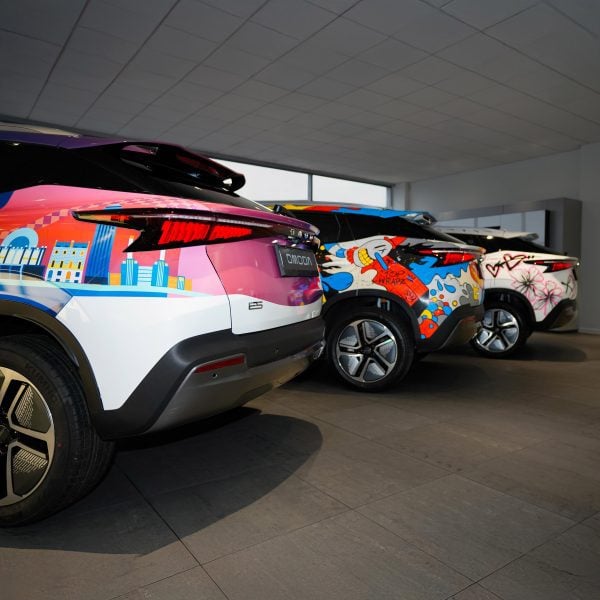Promotion: Chinese car brand Omoda has launched its Designing the Future campaign, which celebrates the launch of the Omoda E5, an all-electric sport-utility-vehicle (SUV), in the UK.
The campaign includes a partnership with three UK-based artists who have customised a new skin for the car, wrapping the Omoda E5 with their artwork.
The public can now vote for their favourite design through Omoda’s social media channels, with each voter also being entered into a ballot for the chance to win a year’s lease of their own Omoda E5, plus a £1000 charging voucher.
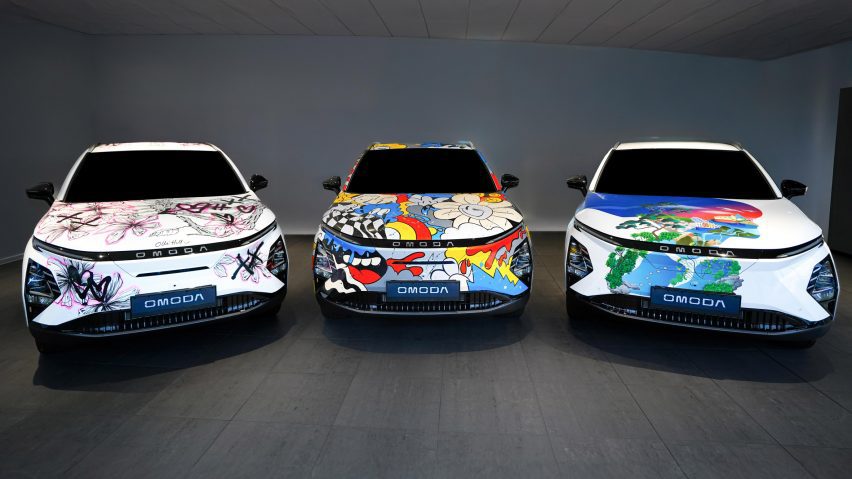
The winning artist will visit Omoda’s research and design centre in Germany, spending time with the car brand’s designers and getting a peek into how the company designs cars.
It coincides with the unveiling of Omoda’s E5, designed to have “a forward-leaning” appearance, accentuated with a T-shape of its striking LED lights on the car’s front.
The E5 is being offered in seven colour finishes, and three two-tone paint schemes. Omoda said the colourways were drawn from the colour of gemstones and rare minerals.
Set to create designs for the car are illustrator Dan Whitehouse, who goes by the name Super Freak. Secondly, artist and designer Olli Hull, and finally artist Jing Zhang. All three have added a “unique flair” to bespoke car designs, according to Omoda.
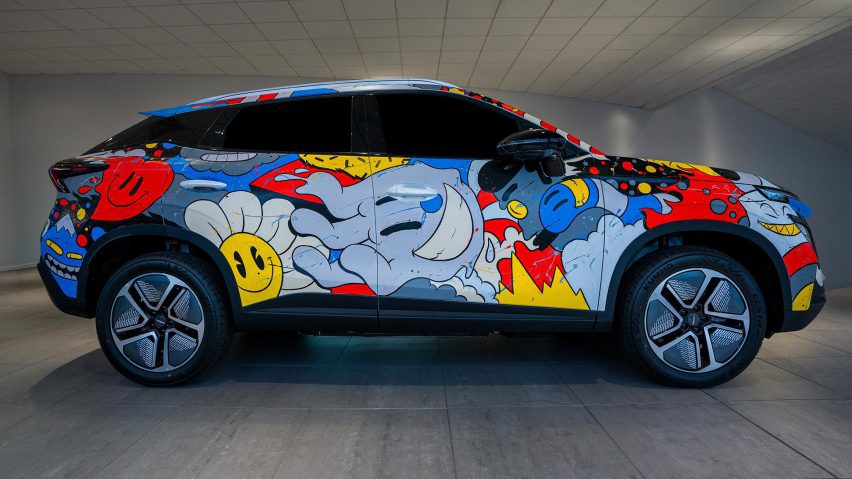
“At Omoda, we believe that creativity, design, and innovation are the driving forces behind exceptional experiences,” chief design officer at Omoda Steve Eum said.
“This collaboration with Dan, Olli, and Jing perfectly embodies that ethos,” he added. Their unique artistic visions, being brought to life on the canvas of our Omoda E5, demonstrate the limitless possibilities when creativity meets automotive design.
Whitehouse, who is based in Birmingham, creates illustrations that often include cartoon characters and primary colours.
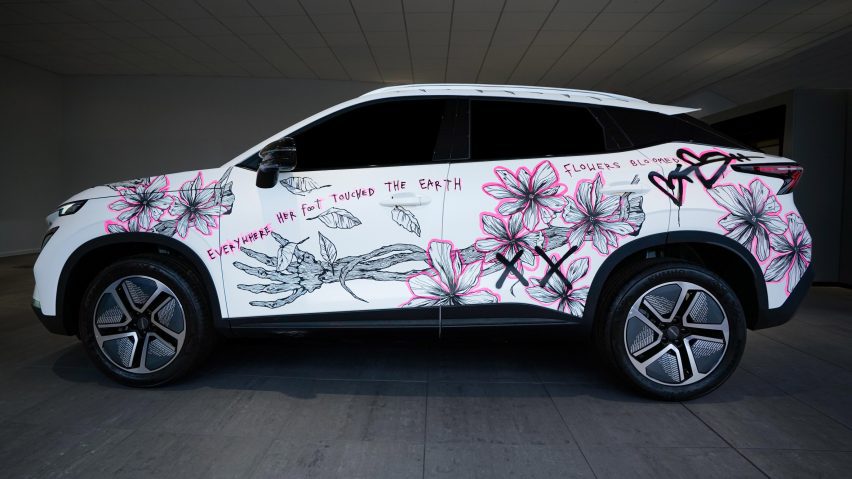
His design reveals an Omoda E5 decorated with playful drawings outlined in black and filled with bold colours. His process involved multiple steps: the car was initially wrapped in the black outline, with the finishing detail and colours applied by hand afterwards.
“One of my earliest dreams when I was a kid was to design cars,” Whitehouse said. “As a grown up, getting the opportunity to put my goofy characters and wonderfully weird world of colours onto an actual car is just a massive pinch-me moment!”
Meanwhile, London-based artist Hull has presented a design operating under the theme of circle of life, rebirth and autumn, in reference to his main artwork The Garden Dress. Hull used spray paints and graffiti art above a skeleton base.
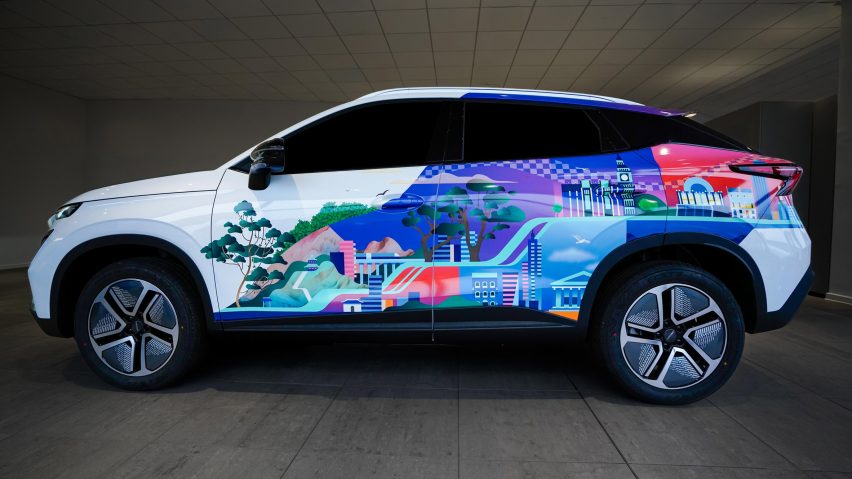
Hull takes a two-tone approach, using a relatively fine pencil for his outlines alongside a vivid pink.
Whilst brainstorming my design for the Omoda E5, I have been thinking a lot about modern fashion trends and how these could be translated onto the exterior of the car,” Hull said.
“The Omoda model is futuristic and sophisticated, and I want my design to reflect that.”
Alongside them, Harrogate-based Zhang, who creates colourful and intricate digital illustrations, has chosen to create designs exploring urban life in a cityscape using the body of an E5 as a canvas. Zhang used a digital technique, later overlaying the car with the wrap.
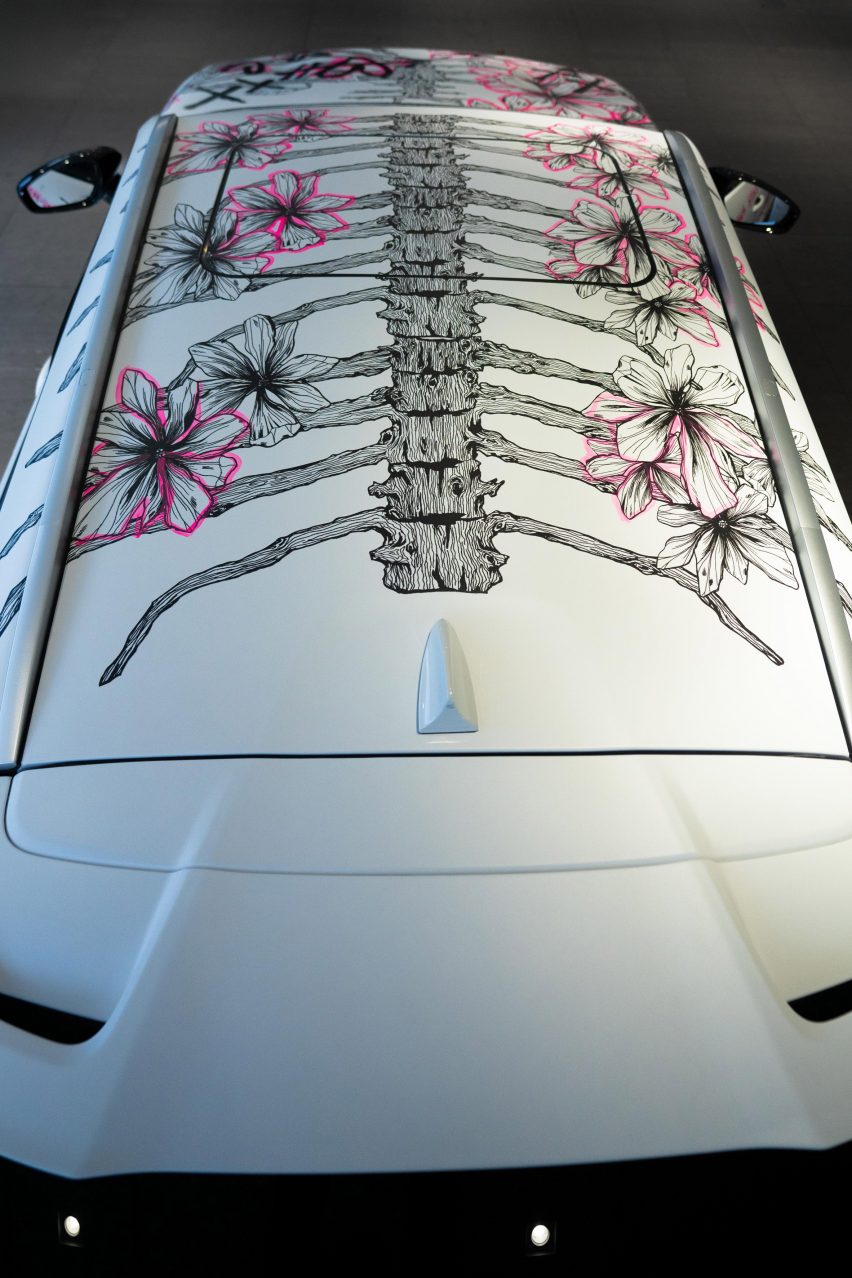
“It is out of my comfort zone to translate my artwork onto a vehicle, but the challenge has been hugely rewarding so far,” she said. “I am usually a digital illustrator, and I want my work on the car to combine both the sleekness of its design with my own taste for intricate patterns and colour schemes.”
The artists’ final designs are now available to vote on, and are currently on display. Voting will be free to enter via Omoda’s social media channels for anyone over 18-years-old.
Omoda is a subsidiary of Chinese car-manufacturer Chery International. Based in Wuhu, China, the company aims to combine cutting-edge automotive design with futuristic technology to appeal to Generation Z users.
The Omoda E5 is the company’s first electric car to arrive in the UK.
For more information, visit the Omoda website.
Partnership content
This article was written by Dezeen for Omoda as part of a partnership. Find out more about Dezeen partnership content here.

